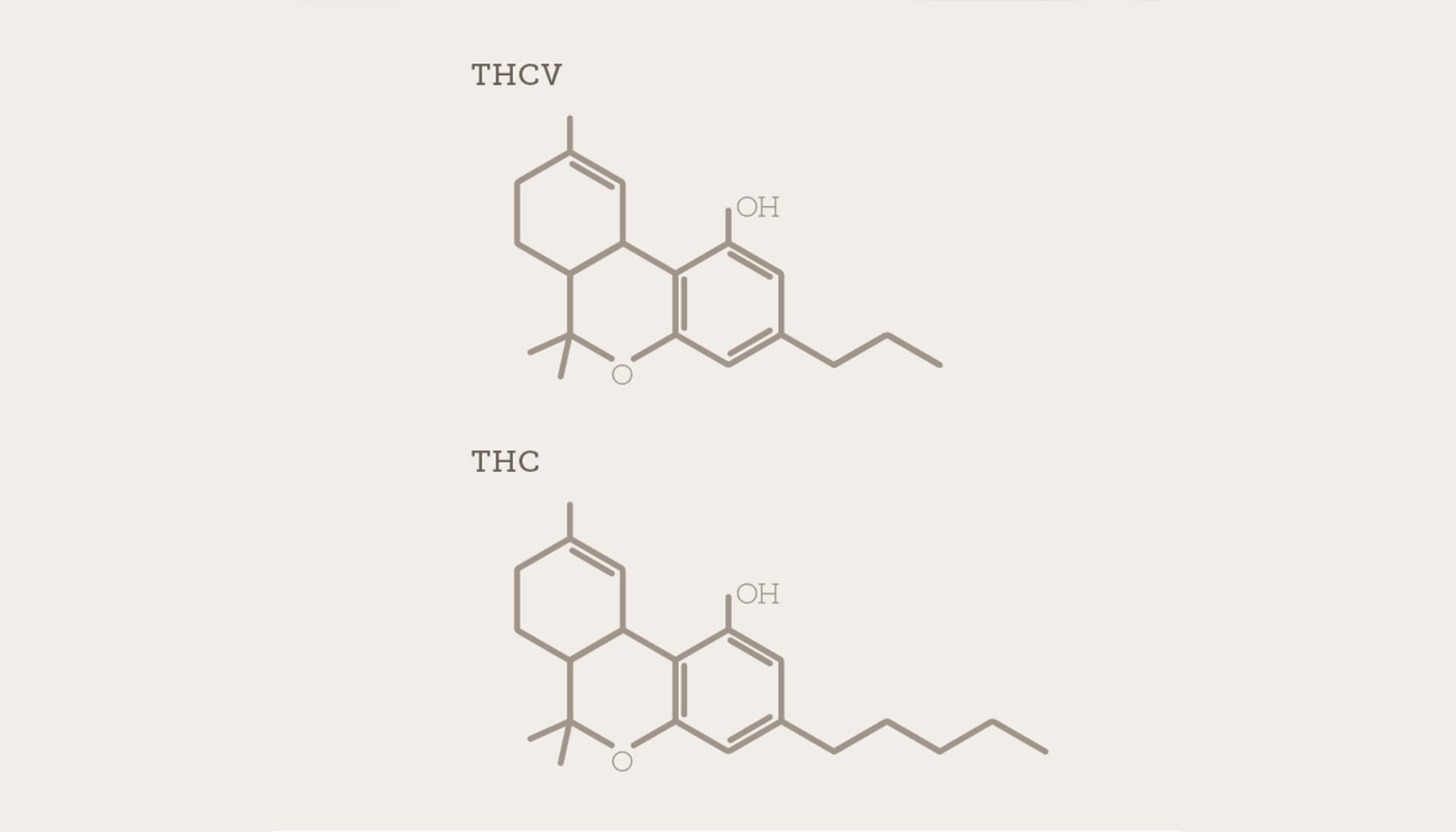Tetrahydrocannabivarin (THCV) is a cannabinoid substance discovered in cannabis and hemp plants. It's chemically comparable to tetrahydrocannabinol (THC) however with some key differences. Here's everything you need to understand about THCV consisting of the dangers, advantages, differences, and similarities with other kinds of THC and more. What Is THCV? THCV is a less typical cannabinoid found in some stress of marijuana, specifically African sativa.
 THCV vs THC: What Are the Differences? Articles Analytical Cannabis
THCV vs THC: What Are the Differences? Articles Analytical Cannabis
 What is THCV and what are the benefits of this cannabinoid? Leafly
What is THCV and what are the benefits of this cannabinoid? Leafly
 Tetrahydrocannabivarin: What is THCV & It's Effects - Dr. Green Relief
Tetrahydrocannabivarin: What is THCV & It's Effects - Dr. Green Relief
THCV has a 3-carbon side chain instead of THC's 5-carbon side chain. This distinction is subtle, however it has an obvious effect on the effect profile. THCV is rather psychoactive however just about and about. What Does THCV Feel Like? THCV has a strong energy-boosting part to it, that makes it especially popular among students and athletes.
In the United States, THCV policy is nuanced. THCV is not an Arrange I Drug, however cannabis extracts are making it somewhat ambiguous what the federal position is on THCV. The 2018 Farm Costs states that hemp plants and all derivatives of the plants are legal on a federal level, numerous business abide by this law and still offer THCV to clients by only extracting the substance from hemp plants.
If THCV is considered a THC analog, it might be managed in the future by the exact same guidelines as THC under the Federal Analog Act. This act specifies that any substance that shares a comparable molecular profile as a recognized prohibited compound it's consisted of in the very same drug Schedule category.
What Are the Impacts of THCV? Supporters of THCV report that it produces an extreme burst of energy and makes them feel blissful without the psychological cloudiness triggered by THC. The effects are super moderate compared to THC. The impacts are almost exclusively cognitive yet somehow have extremely little effect on headspace.
2. THCV & Hunger Some THCV users claim that it curbs their hunger. This is a common impact of other focus-enhancing substances. It's as though THCV removes the distraction of other physical processes (like cravings) in order to maintain resources and attention to cognitive jobs rather. How Does THCV Work? Cannabinoids produce biological impacts in the human body by communicating with endocannabinoid receptors.
CB1 receptors lie in the nerve system and connect with neurotransmitters in the brain to produce mind-altering effects. Interaction with CB1 sites is what gives some cannabinoids like THC their psychoactivity. THCV is a bit challenging to understand since it's mainly a CB1 antagonist, implying it has the opposite impact as THC.
While scientists are still looking for to comprehend this procedure, it appears THCV is able to block the impacts of CB1 in low dosages and stimulate them in high dosages. CB2 receptors are found mostly in the immune system. THCV is a partial agonist of CB2, but the impacts of this partial activity aren't popular, and it seemingly has no noticeable effect on THCV users' experience.
As mentioned in the previous section, THCV is a CB1 villain in low dosages which is the precise opposite result of delta 8 and delta 9 THC. This might indicate that THCV neutralizes a few of the psychedelic effects of THC. This impact might describe why individuals who use THCV feel so clear-headed especially compared to the notorious "fogginess" caused by delta 9 THC.